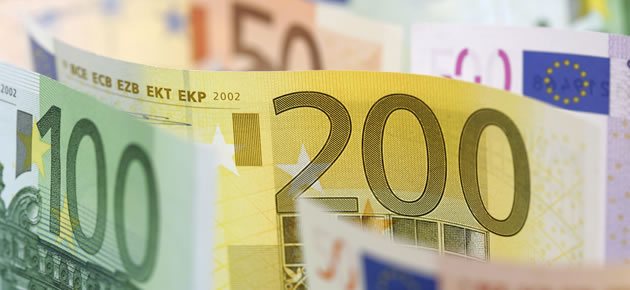The New Zealand Dollar may have fluctuated in response to disappointing domestic trade data, but the commodity-driven currency was still able to advance on a struggling Euro.
Last week’s patchy economic reports for the Eurozone (including Germany’s disappointing confidence data) drove up expectations surrounding the prospect of additional European Central Bank stimulus and weighed on the Euro.
The common currency came under additional pressure after ECB President Mario Draghi used a conference in Portugal to express concerns regarding the level of inflation in the 18-nation currency bloc.
Draghi asserted that the central bank needs to be ‘particularly watchful’ of the ‘potential for a negative spiral to take hold between low inflation, falling inflation expectations and credit, in particular in stressed countries. We are not resigned to allowing inflation to remain too low for too long’.
This all but confirmed that the ECB intends to introduce additional stimulus at next month’s policy meeting.
While economists aren’t yet sure whether the ECB will deploy a rate cut, negative rates or a new bond-buying scheme, any of these options (or a combination of the three) could keep the Euro under significant pressure.
Meanwhile, the New Zealand Dollar maintained a stronger position against the common currency even as a domestic report showed that New Zealand’s trade surplus narrowed by more than anticipated in April.
A steep drop in exports saw the surplus narrow from a negatively revised 935 million Dollars in March to 534 million Dollars in April.
Although the report saw the New Zealand Dollar experience modest fluctuations, the currency advanced on Tuesday as investors awaited the Fonterra Cooperative Group’s milk price forecast.
According to senior advisto Stuart Ive; ‘I expected a bit more pressure placed on the Kiwi ahead of the expectations for a weaker payout forecast by Fonterra tomorrow, that will be in the back of everyone’s minds. If Fonterra were to reduce the payout, the Kiwi might struggle to go through [the 85/85.10 US cents] level.’
Overnight additional movement in the Euro to NZD pairing could be caused by New Zealand’s activity outlook and business confidence reports for May.
Of course German employment figures and the Eurozone’s consumer confidence measure will also have an impact on the Euro to New Zealand Dollar exchange rate on Wednesday.
The final Eurozone consumer confidence report is expected to confirm a reading of -7.1 in May.
Euro (EUR) Exchange Rates
[table width=”100%” colwidth=”50|50|50|50|50″ colalign=”left|left|left|left|left”]
Currency, ,Currency,Rate ,
Euro, ,US Dollar,1.3645,
,US Dollar,1.3645,
Euro, ,British Pound,0.8114,
,British Pound,0.8114,
Euro, ,Australian Dollar,1.4729,
,Australian Dollar,1.4729,
Euro, ,New Zealand Dollar,1.5947,
,New Zealand Dollar,1.5947,
Euro, ,Canadian Dollar,1.4798,
,Canadian Dollar,1.4798,
[/table]



